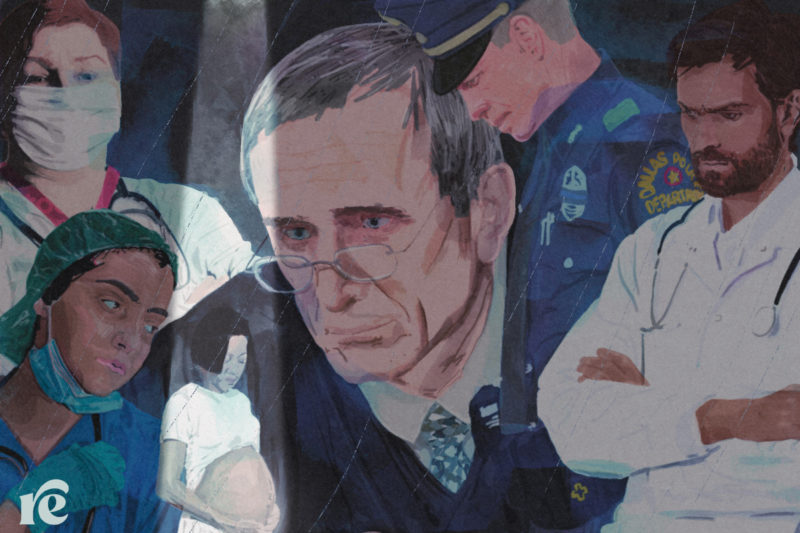Editor’s Note: A Gathering Storm With Roe’s Reversal
Dismantling Roe v. Wade threatens not only people who need abortions safely and legally but also the entire legal status of people who can become pregnant.

For more on the criminalization or pregnancy, check out our special edition.
In late November 2013, Marlise Muñoz was in her Texas home making a bottle for her 15-month-old son when she collapsed onto her kitchen floor. Approximately 14 weeks pregnant at the time, Muñoz had been stricken by a pulmonary embolism that caused her collapse. Her husband Erick reportedly found Muñoz about an hour later, alive but not breathing. Erick rushed his wife to the hospital. Two days later she was declared brain dead.
In some ways, that’s the beginning of Muñoz’s story.
For over seven weeks doctors and administrators at John Peter Smith Hospital in Fort Worth, Texas, kept Muñoz on life support against her family’s wishes. It didn’t matter that Muñoz had a living will that specifically rejected measures like the ones John Peter Smith Hospital was using to keep her alive. In Texas, and 25 other states, people who are pregnant or can become pregnant will have their advance directive wishes ignored and set aside in order to try and continue their pregnancy.
There are few words to describe the very public tragedy the Muñoz family experienced. In a statement pleading with a Texas court to remove his wife from life support, Erick offered a grim picture of what officials were doing in the name of trying to advance a doomed pregnancy:
When I bend down to kiss her forehead, her usual scent is gone, replaced instead with what I can only describe as the smell of death. As a paramedic, I am very familiar with this smell, and I now recognize it when I kiss my wife. In addition, Marlise’s hands no longer naturally grip mine for an embrace. Her limbs have become so stiff and rigid due to her deteriorating condition that now, when I move her hands, her bones crack, and her legs are nothing more than dead weight.
In January 2014 a Texas judge finally ruled that the hospital could no longer keep Muñoz on life support against her family’s wishes. Texas Gov. Greg Abbott, who was attorney general at the time, grudgingly agreed to accept the ruling.
Since Muñoz’s death, things have in many ways gotten worse for people who are pregnant or can become pregnant in Texas, thanks to the enactment of SB 8 and the advent of abortion vigilantes. But her story, and the ongoing human rights crisis unfolding in Texas and across this country due to the near-total abortion ban imposed by SB 8, serve as horrific foreshadowing for what could rapidly unfold if the Supreme Court overturns Roe v. Wade.
It’s not just that over 20 states are poised to ban abortion immediately should the Supreme Court overturn Roe v. Wade—which it could do as early as next year in Dobbs v. Jackson Women’s Health Organization, the case the Court heard this week. It’s that the effects of a Roe reversal have been gathering for some time already, as Becca Andrews explains in this piece.
Of course, enforcing abortion bans necessarily means further police involvement and government surveillance in pregnancies. As Imani Gandy, Rewire News Group’s senior editor for law and policy, explains here, we already know who will bear the burdens of that increased reproductive surveillance—Black and brown folks who are already disproportionally policed and punished for poor pregnancy outcomes in this country. Mali Collins has more on that here. And, as Rewire News Group’s reporting fellow Caroline Reilly explores, policies that police pregnancies and target abortion inevitably make it more dangerous for people trying to get pregnant as well.
That’s why A Gathering Storm is the theme for our final special edition of the year. This year, states passed over 100 abortion restrictions—the most since abortion was legalized nationally in 1973. The threat in a Roe reversal is not just that people who need abortions will be unable to safely and legally access them. Criminalizing abortion threatens the entire legal status of people who can become pregnant. That threat isn’t theoretical. It’s real and it’s here.
